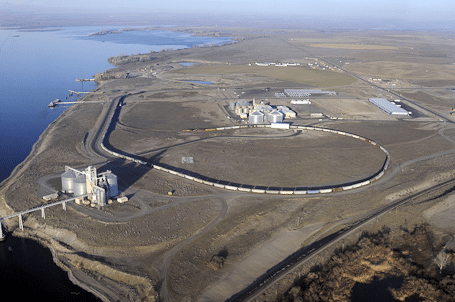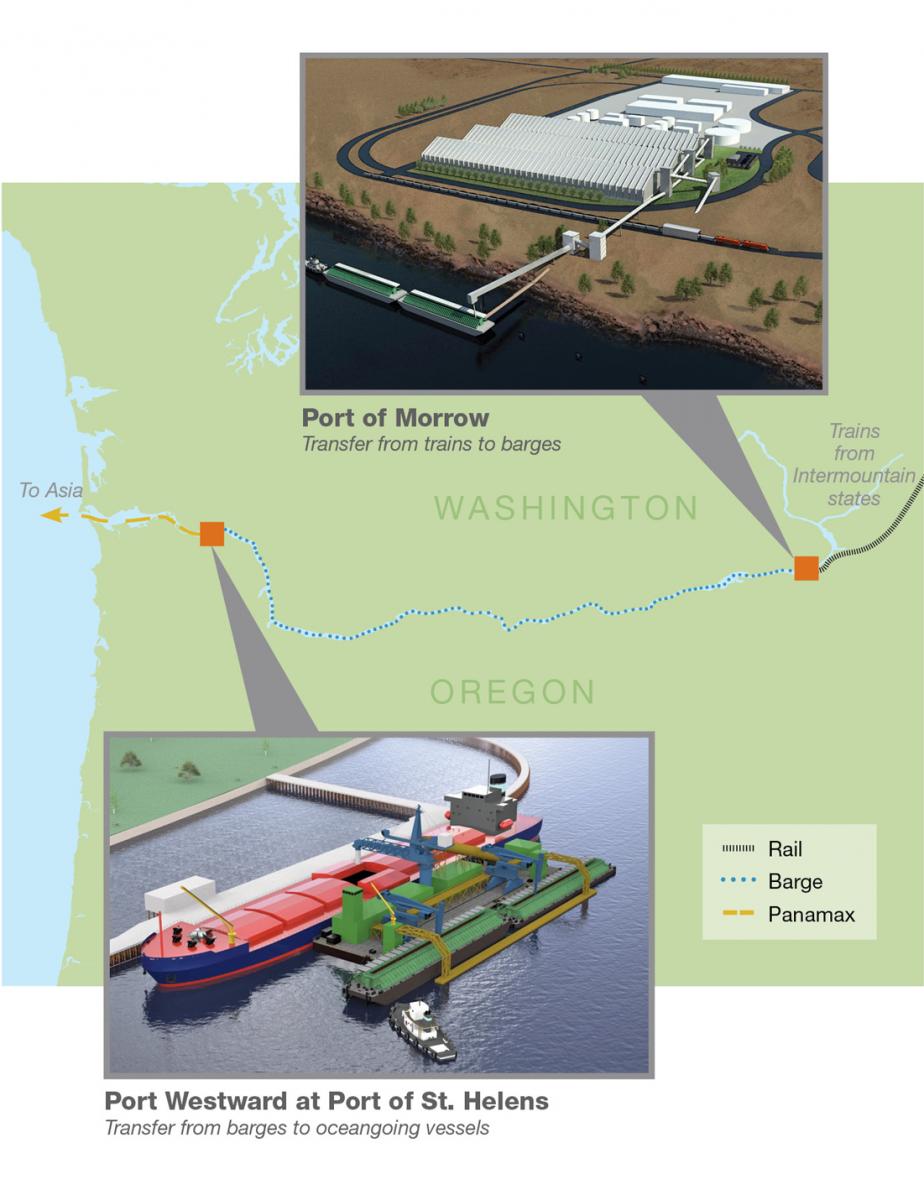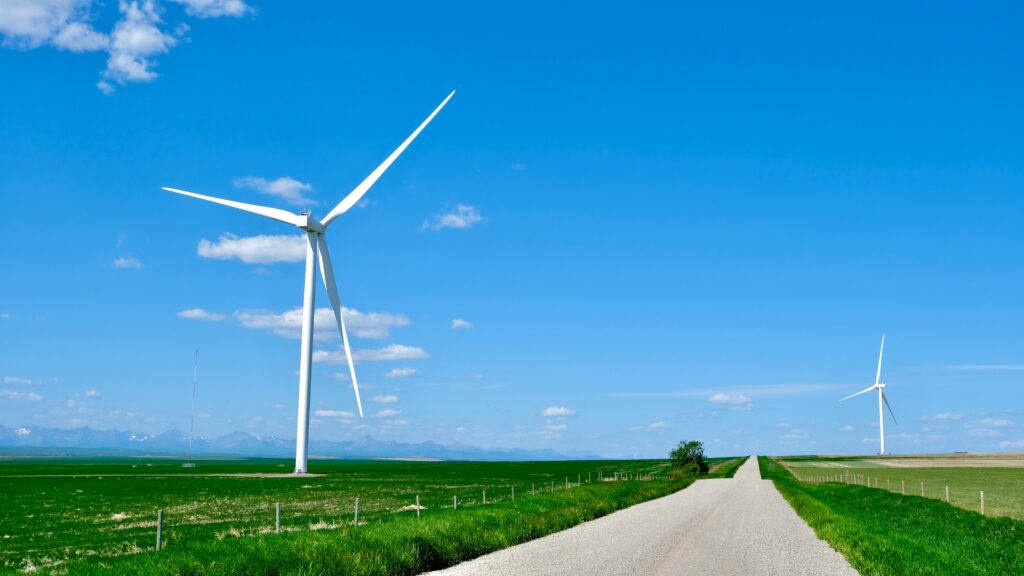The Army Corps of Engineers has decided that the transfer of coal from trains onto barges in Oregon’s Columbia River is not worthy of a full environmental impact study. For now.
At issue is the Morrow Pacific Project, a coal transfer facility that is a key pivot point in Ambre Energy’s plans to export American coal to Asia. We’ve covered this project before (here’s all the background on the Morrow Pacific Project), as well as the broader strategy of coal companies to ship American coal – much coming from taxpayer-owned public lands – off to China and other overseas buyers.
Basically, Ambre Energy (an Australian coal and shale company) is planning on shipping coal by train from the strip mines in the Powder River Basin to this Morrow Pacific facility at the Port of Morrow in Boardman, Oregon. There the coal would be offloaded onto barges – at the rate of two per day at full capacity – which would then float down the Columbia River to Port Westward (roughly 30 miles north of Portland), where it would again be transferred onto massive Panamax vessels for shipment to Asia.
When we last wrote about the Boardman transfer facility back in April, the Army Corps was soliciting public comments on the proposed project. Now that the roughly 30,000 comments have been processed, Scott Learn of The Oregonian is reporting that the Army Corps is keeping the project on the “fast track” for approval.
This “fast track” will involve an “environmental assessment,” but as Learn reports, “that stops short of the full-blown, years-long environmental impact statement that environmental groups wanted.”
This lighter review should take only a few months to complete, and doesn’t require a draft to be released to the public for comment. It also bucks the advice of the U.S. Environmental Protection Agency (EPA), which in its advisory role had submitted public comments (PDF) that posed serious questions about the potential impacts of the project.
Transporting and transloading up to 8.8 million tons of coal with eleven trains, twelve loaded barge tows, and two Panamax ships per week has the potential to significantly impact human health and the environment. Two of our primary preliminary concerns relate to the potential for adverse effects from project-related coal dust and diesel pollution. Coal dust is a human health concern because it can cause pneumoconiosis, bronchitis, and emphysema. Coal dust is an environmental concern because it may settle on water, soil, or vegetation and impair biological processes such as photosynthesis. In addition, coal dust has been shown to cause tumors in experimental animals. We are similarly concerned about diesel emissions because they can cause lung damage, aggravate existing respiratory disease such as asthma and are thought to be a human carcinogen. Diesel emissions have a high potential to impact people who are sensitive to the health effects of fine particles (e.g. children, the elderly, and those with existing heart of lung disease, asthma or other respiratory problems)
Besides the public health implications, the EPA also expressed concerns about impacts on listed species and critical habitats, as well as the project’s potential contributions to “cumulatively significant impacts” like climate change.
It is yet unclear whether the Army Corps’ review will include these broader impacts, or if it will focus specficially to the construction of the terminal and loading docks themselves, and nothing that happens up- or downstream (literally and figuratively).
Predictably, the “Environmental Review” that Ambre Energy commissioned and published in June, and updated in August to address the concerns raised by the public comments, takes the narrow view. That report was prepared by Anderson Perry & Associates, and dismisses many of the environmental issues as “beyond scope” of the review.
There would be precedent for a full-blown environmental impact assessment. The Seattle office of the Army Corps is currently working on full EIS reports for two Washington export terminals that are currently under review. There is still a chance that the Portland corps’ office will pursue the full EIS, if, as Learn reports, “they find potentially significant environmental impacts during the course of their review.”
For their part, Ambre Energy is trying to quell concerns about pollution by suggesting that “[b]ulk commodities such as grain and wood products have been shipped by barge on the Columbia River for decades.” Of course, coal is dirtier than grain and wood products.
We’ll stay on this story whenever there are big developments, but if you want to follow along blow-by-blow, you can’t do better than Scott Learn’s consistently great and thorough reporting for The Oregonian.
Images: Ambre Energy
Subscribe to our newsletter
Stay up to date with DeSmog news and alerts








